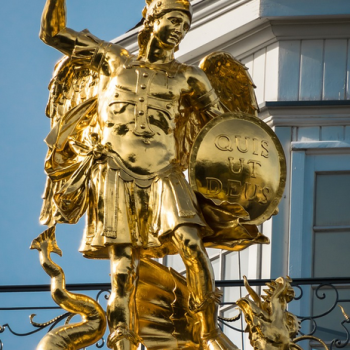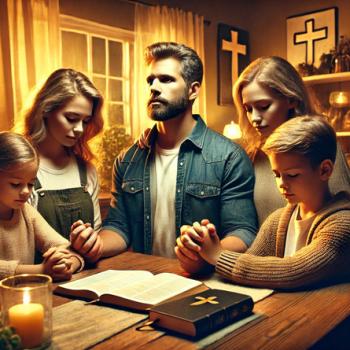What do Mormons mean when we say that The Church of Jesus Christ of Latter-day Saints is "the only true church"?
It's easy to see the offence that claim can cause. It smacks of arrogance, as if to say "we have the truth and others don't."
For many years leaders of the LDS Church have denied that. For example, in 2002 President Gordon B. Hinckley, President of the Church and revered as a prophet, said "To [those of other faiths] we say in a spirit of love, bring with you all that you have of good and truth which you have received from whatever source, and come and let us see if we may add to it." We hear some version of that statement repeated regularly. Even if it is arrogant to believe that we have something that others do not, which may or may not be so, potential converts cannot keep truth if they do not already have it.
In 1978, the First Presidency of the Church made it explicit that truth is found outside the LDS Church when they said that "the great religious leaders of the world such as Mohammed, Confucius, and the Reformers, as well as philosophers including Socrates, Plato, and others, received a portion of God's light."
In 1873, however, long before the First Presidency message, something like the same sentiment was expressed beautifully by John Taylor. Speaking of premodern western thought, he said:
There were men in those dark ages who could commune with God, and who, by the power of faith, could draw aside the curtain of eternity and gaze upon the invisible world. There were men who could tell the destiny of the human family. . . . There were men who could gaze upon the face of God, have the ministering of angels, and unfold the future destinies of the world. If those were dark ages I pray God to give me a little darkness, and deliver me from the light and intelligence that prevail in our day.
Taylor overlooked women, but it was the 19th century, so we should overlook that fault and recognize the spirit of what he said: the so-called middle ages were a time of great spiritual knowledge and strength.
In the Christian tradition we owe not only the Protestant Reformers and Catholic Counter-Reformers, but also earlier spiritual leaders like Bernard of Clairvaux and Francis of Assisi. They and John Henry Newman are among those who have written hymns that Mormons sing, and early LDS revelation says "the song of the righteous is a prayer unto me, and it shall be answered with a blessing upon their heads" (D&C 25:12).
The First Presidency statement, Elder Taylor, and the LDS hymnal recognize that God gives his light to all human beings. Whatever the claim to be the true church has meant, it seems never to have meant that Mormons have a monopoly on truth or religious insight.
And, of course, it takes very little reflection to recognize that we don't have a monopoly on righteousness. Our practice of proxy work for the dead is a recognition of that point: salvation is available to anyone who desires it. Mormons have no monopoly on access to God.
Ultimately, though, the claim to be the true church must mean something. The Book of Mormon speaks of "the true church of Christ" and Mormonism has claimed to be "the true church" from its earliest days. We repeat the claim with regularity, and we commend others to take the claim seriously. For Mormons saying that we are members of the true church marks a difference between ourselves and others, a difference that probably cannot be erased without also erasing the distinctiveness of Mormonism.
So what do we mean? Frankly I doubt that we are usually sure. What we say has a liturgical and rhetorical meaning as much as or more than a referential one. We mean at least to show our loyalty to the LDS Church and the importance that our membership has to us. We mean to avow that the LDS Church is unlike other churches in significant ways. Those liturgical and rhetorical meanings are important, not to be depreciated. Yet I think we also mean more.
It seems to me that the phrase "true church" means what it does as a parallel to Old Testament phrases like "true God." The Hebrew word used in the latter phrase is emet: firm, established, faithful, reliable.
On that parallel, besides all of the other things implied when we say that the LDS Church is the true church, we testify that it has been established by God. We say that it is firm, faithful, reliable as the bearer of God's word.
But to say that is not to say that no other churches could have been established by him or that none other is faithful. If, as the First Presidency's message avers, God has also revealed some measure of his word to others, including non-Christians, then there is an important sense in which he has also established the churches (using the term broadly) of those who have received his light.





